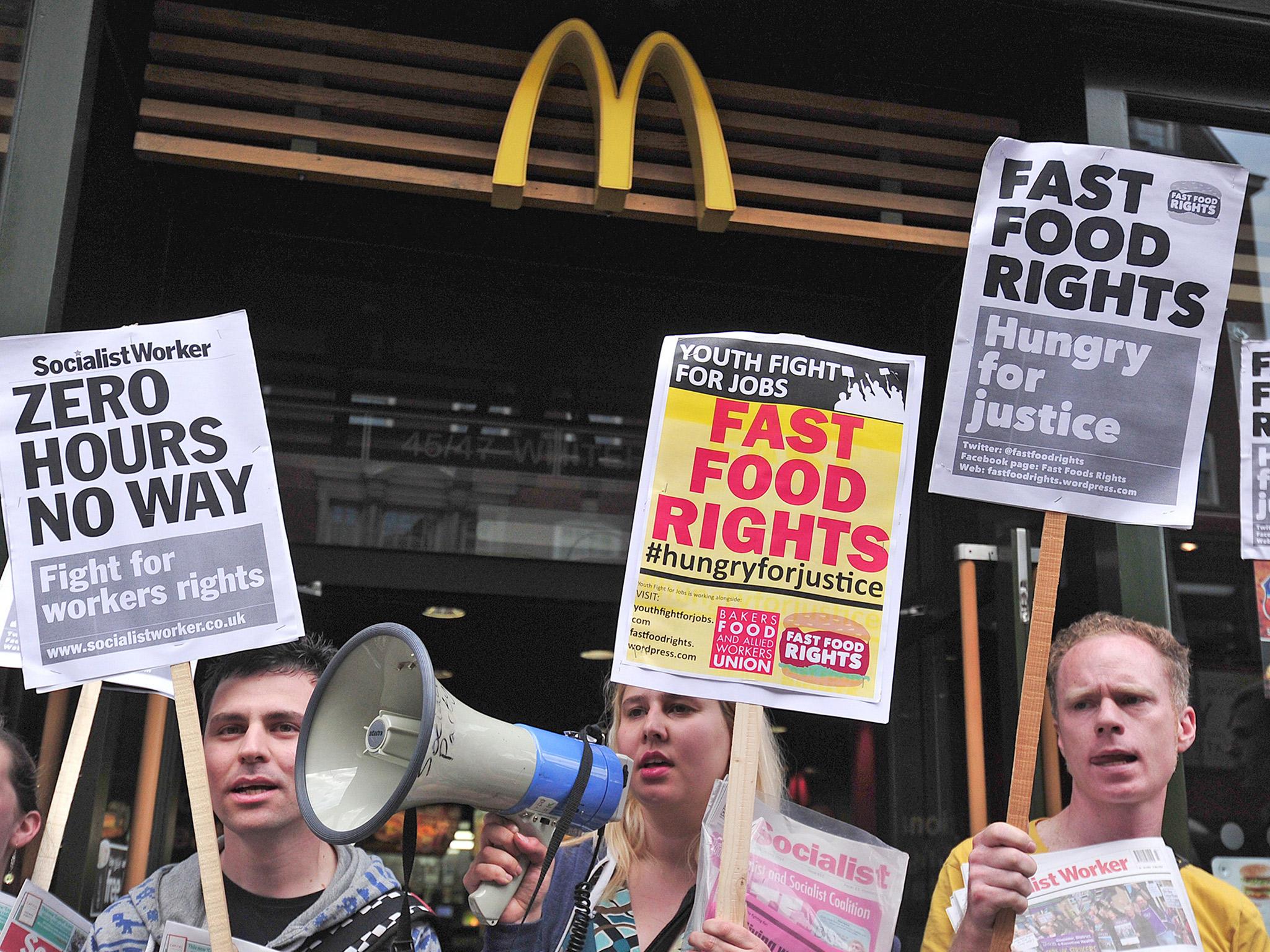Labour stood by its principles by banning McDonalds - calling Jeremy Corbyn a snob misses the point
It is a small gesture but perhaps it can help show that Labour takes tackling diet-related disease, which disproportionately affects the poorest, seriously

Your support helps us to tell the story
From reproductive rights to climate change to Big Tech, The Independent is on the ground when the story is developing. Whether it's investigating the financials of Elon Musk's pro-Trump PAC or producing our latest documentary, 'The A Word', which shines a light on the American women fighting for reproductive rights, we know how important it is to parse out the facts from the messaging.
At such a critical moment in US history, we need reporters on the ground. Your donation allows us to keep sending journalists to speak to both sides of the story.
The Independent is trusted by Americans across the entire political spectrum. And unlike many other quality news outlets, we choose not to lock Americans out of our reporting and analysis with paywalls. We believe quality journalism should be available to everyone, paid for by those who can afford it.
Your support makes all the difference.In 2002 Bill Clinton and Tony Blair took a break from Labour’s gathering in Blackpool for burgers and fries under the seafront Golden Arches.
With National Executive Committee (NEC) apparently banning McDonalds from next autumn’s conference and some reports suggesting the vegetarian Jeremy Corbyn is refusing to meet President Obama at all, let alone for burgers, we’re a long way from that Blackpool outing.
The subsequent row tells us a lot about how the party, and the debate about public health, has changed.
By banning McDonalds there is a real danger, as with Emily Thornberry’s tweet of a George Cross bedecked white van, that the Labour Party looks disdainful of a working class that built it and put it in power.
That said, Labour in power took brave, and initially unpopular, decisions - like the smoking ban in public places and changes to school meals in the name of public health.
The flipside of appearing snobbish is looking hypocritical by lecturing people on healthy eating while accepting cheques from fast-food companies.
It is a small gesture but perhaps it can help show that Labour takes tackling diet-related disease, which disproportionately affects the poorest, seriously.
Many high streets in deprived areas, like the one I represent on Lambeth Council, are full of fast-food takeaways, betting shops with fixed odds betting terminals, pay-day loan shops and off-licences. Those least able to afford it are being given the easiest access to the worst options in terms of food, drink and entertainment and charged extra for their basic needs.
The market, some would argue, is just responding to consumer demand. By that logic, anyone seeking to interfere, even by refusing a conference stand to one of these businesses, is a snob seeking to impose their middle class values on the poor.
I would argue that those in positions of power and influence have a duty to use it to support better choices.
Powerful research, like that presented by economist Sendhil Mullainathan and psychologist Eldar Shafir in their book Scarcity, suggests that poverty's effects on the mind lead to bad decisions.
Scarcity reduces our mental space and distorts our decision-making, leading to cyclical bad habits. Juggling zero-hours jobs, a small and fluctuating income, housing and childcare difficulties exhausts people, making it more likely they choose short-term fixes like fast food or pay day loans.
Labour needs to produce a policy platform that enables everyone the space to make their own better choices in order to enjoy better health and wellbeing and have a greater chance of fulfilling potential.
Campaigning for the London mayoral elections after the Panama Paper revelations, I have never heard such deep and widespread cynicism about politicians. All of us, from all wings of all parties, need to address that or we will provide the space for a figure like Donald Trump or Marine Le Pen to rise.
The NEC’s decision to keep the Golden Arches out of the conference centre can easily be seen as Labour walking the walk after talking the talk.
Ed Davie is a Labour Councillor in the London Borough of Lambeth
Join our commenting forum
Join thought-provoking conversations, follow other Independent readers and see their replies
Comments